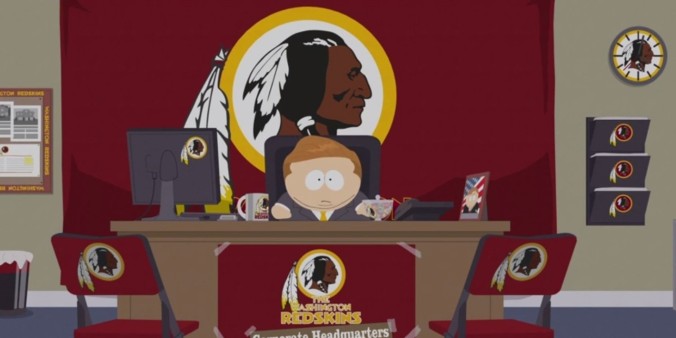[originally published September 10, 2015 at www.law-dlc.com]
The federally-registered trademark for the “Washington Redskins” has been under attack since 1992. On June 18, 2014, the Trademark Trial and Appeal Board (TTAB) of the United States Patent and Trademark Office (USPTO) voted to cancel six marks held by the organization on grounds that “Redskins” was disparaging.
This vote was upheld on appeal on July 8, 2015 by the United States District Court for the Eastern District of Virginia. As of today, the federal registrations for “Washington Redskins” have been cancelled.
The media initially has had a field day with this news, essentially declaring that the trademark itself has been cancelled. The television show South Park even aired an episode on September 24, 2014 where a central plot point involved a character naming his company “The Washington Redskins” because the football team lost its trademark and the team’s owner, Daniel Snyder, was deemed powerless to stop the unfettered use of the name.
The problem is that “Washington Redskins” is still a trademark and the professional football team still can, and likely will, litigate against anyone who uses the name based on the faulty assumption that the trademark no longer exists. Why the confusion? The TTAB cancelled the federal registration of the mark. The TTAB did not cancel the underlying trademark itself. The “Washington Redskins™” still potentially exists as a valid and enforceable trademark under the common law.
What then are the consequences of having the “registration” cancelled for a federal trademark? Primarily, it means the owner of “Washington Redskins™” loses certain presumptions and benefits that are afforded with having a registration. This includes the presumption of validity and exclusivity that is awarded to registered marks. It also includes a presumption of nationwide use, as opposed to a more limited geographical scope of use. More importantly for the Washington Redskins entity, a registration would grant them rights to certain statutory damages in the event of counterfeiting — which can be common for sports memorabilia and merchandise. Proving “actual” damages is a heavier burden that being entitled to statutory damages.
This is why the team’s owners continue to fight for federal registration. There are substantial benefits to having a federal trademark registration under United States trademark law. If you own a business or corporate entity in the United States, but do not possess a federal registration for the trademarks associated with your brand, I recommend that you contact qualified legal counsel to assess the viability of seeking federal registration for all of your potential trademarks.

0 Comments
1 Pingback